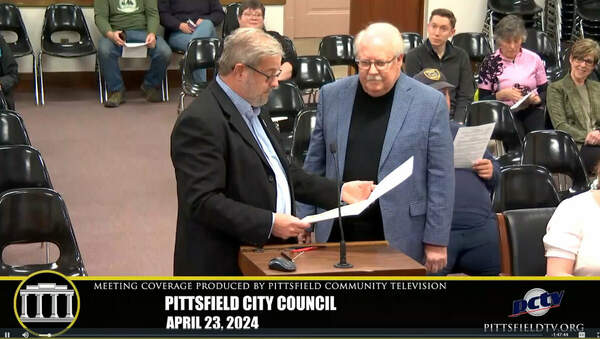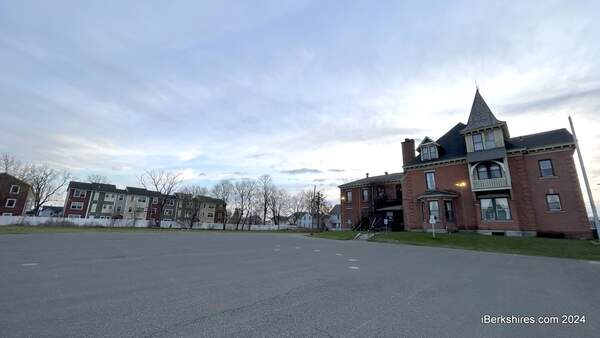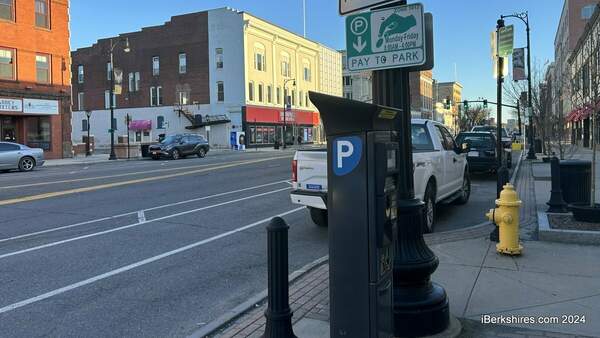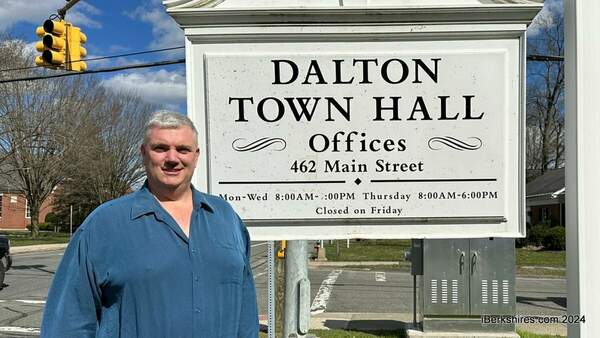
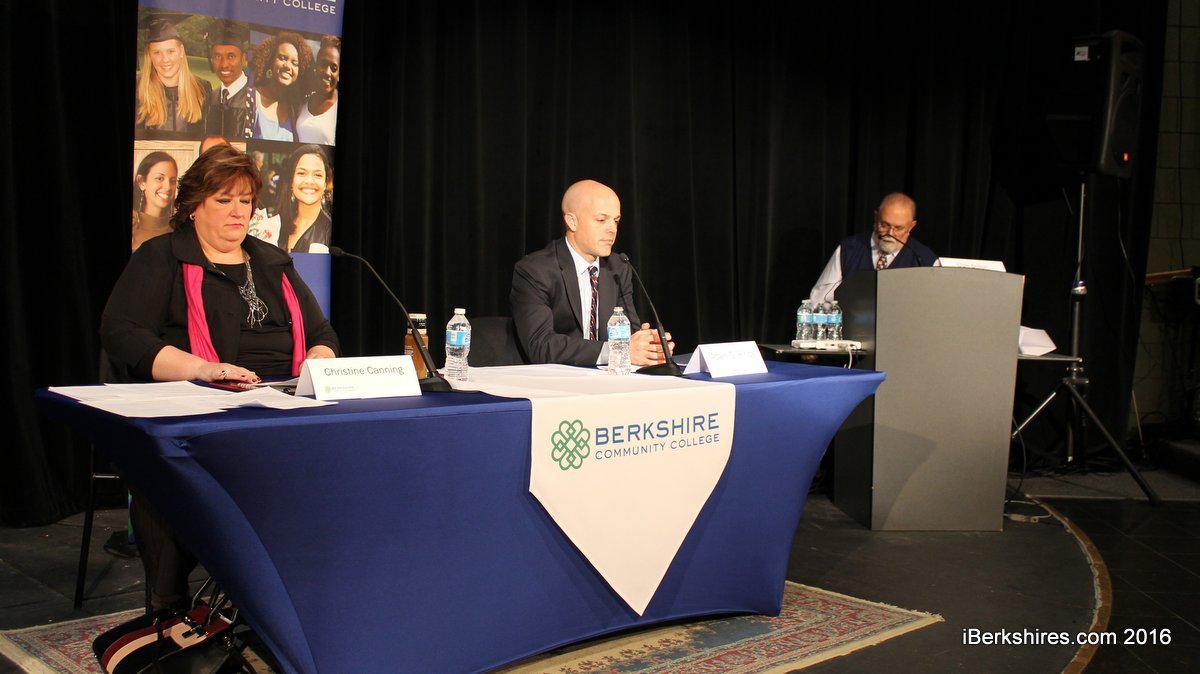
Senate Candidates Handle Slew of Questions During Debate At BCC
PITTSFIELD, Mass. — Most of the questions at Monday's state Senate debate were on the ballot questions, with each of the two candidates taking slightly different views on them.
Republican Christine Canning-Wilson and Democrat Adam Hinds are both seeking election to the state Senate seat being vacated by Benjamin Downing. The two faced off at a debate Monday night sponsored by the Pittsfield Gazette and Berkshire Community College and moderator Dan Dillon said while the ballot questions are going to voters, the candidate's answers do reflect where they stand on hot topics in the state.
He started off with the question of expanding charter schools. The ballot question would allow for a dozen more to open in the state. Canning-Wilson said she was "neutral" on the topic while Hinds opposes the expansion.
"Charter schools would be fabulous in the eastern part of the state," Canning-Wilson said.
The longtime educator and administrator says in the Level 4 or 5 school districts, charter schools open an opportunity for parents. But in the Berkshires region, where there are no schools at those levels, she said the funding of charter schools poses a challenge to local districts, districts that can't deny certain children enrollment or expel students.
"Public schools don't have the option of who they get, charter schools can pick in choose in some instances," she said.
Canning-Wilson said traditional public school districts need to have the funding to put toward special education, which is mandated.
Hinds, on leave as director of the Northern Berkshire Community Coalition, said before even thinking about more charter schools, the Chapter 70 foundation formula needs to be sorted out.
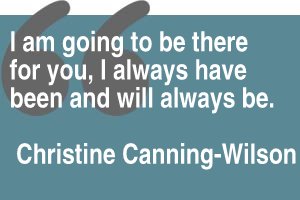
"We need to make sure our public schools are as strong as they can be," Hinds said. "We need to get the financing part right before we talk about expanding more charter schools."
He added, "There is no way we can take ourselves seriously if we don't have the best schools around" and that he already convened a group of educators to discuss how to change the foundation funding formula and fix the funding shortfalls in the public schools.
The two did have a disagreement over whether or not it was Chapter 70 or Chapter 71 that is the foundation formula with Canning-Wilson saying 70 was for regional school transportation and Hinds saying transportation was 71. Hinds was correct in that argument. But nonetheless, they both voiced similar concerns.
A followup on that was whether St. Joseph Central High School, which the Diocese of Springfield just announced will close at the end of the school year, could be a charter school. Hinds said there do not seem to be people "clamoring for another charter school" so he doesn't expect that to be much of a threat. But, the closure does mean another vacant downtown building that will need to be addressed.
"The reality is the diocese should have been more transparent," Hinds said of the pending closure.
Canning is a St. Joe graduate and has joined in the movement to try to keep it open. She, too, doesn't think the building is fit for a charter school because of needed capital repairs. The closure, however, has a number of impacts on the city from the loss of 24 jobs to 68 students looking for faith-based education.
Meanwhile, "they are building a $50 million plus Catholic school in Springfield" that is likely too far for local families to travel for faith-based education. She believes the way the closure was announced was "unfair to families."
On the question of legalizing marijuana for recreational use, Hinds took a more moderate stance while Canning-Wilson definitively supported passing it.
Canning-Wilson, who exhumed plenty of laughs and chuckles throughout the night with her quick wit and humor, said "long live Cheech and Chong" and her eyes lit up with possibilities for economic growth with the legalization. She said the Berkshires and the state should go right after the hemp market, growing it, selling it, and making products with it. She said hemp can be used in many, many products and that will create jobs, business growth, and tax revenue.
"My opinion on this is that we take it and tax it because people are more ready to buy the clean stuff than the dirty stuff on the street," Canning-Wilson said.
She countered the arguments that it would enhance a drug problem saying, "The amount of people who actually use marijuana are people who are 45 years old and up. The new generation doesn't want it, they are into synthetic drugs."
Hinds said, "I have no problem with adult use of marijuana" and that he had supported medical marijuana and the decriminalization of it, saying the "war on drugs has been a failure."
But, he is also working with the community coalition on preventing substance abuse among the youth, which gives him pause. He doesn't want marijuana to have an impact on developing brains and vowed that if elected, he'd work with the other legislators to put in restrictions to prevent it from getting into the hands of youth.
Further, he said there is also a lot to do when it comes to making sure authorities can test for driving while under the influence of marijuana as well as concerns with the money flow since the federal government still has laws against it. Much of Colorado's legal pot industry is handled in cash, for instance.
Dillon questioned the tax revenue, saying casinos haven't yet brought in the expected boon that proponents had been expecting. Both candidates expressed concern about gambling in the state as well, particularly with gambling addiction.
"The odds are rigged against you," Canning-Wilson said.
She said with casinos there comes problems such as sex trafficking and other problems. She doesn't want to see that element locally — though she suspects a casino may be wanting to come here — and would fight to ensure there is proper oversight and prevention of any negative consequences.
Hinds said that while adults should have the ability to make the decisions on how they want to spend their money, "there is a lot of folks who have problems with gambling." He said any casino proposal would need to be looked at on a case-by-case basis.
Another ballot question is that of treatment of farm animals. The question sets certain restrictions on how animals being raised for food are treated — such as allowing a cow to have a stall large enough so that it can turn around.
"Having a human perspective of animal treatment is an important part of who we are," Hinds said, fully supportive of the law.
Hinds said only one farm in the entire state would be impacted by the laws. Canning-Wilson also supports humane treatment of animals. She added that oftentimes travel for animals going to slaughter leads to cramped cages. She said the Berkshires could benefit from a slaughterhouse with quick and painless deaths of the animals being raised for food. That would help the local farmers as well.
The local question of adopting the Community Preservation Act is also on the ballot. That would put a 1 percent surcharge on tax bills above the first $100,000 value and be put to use for historic preservation, conservation and open space, recreation, and affordable housing.
"I think it is an important part of preserving some of our aging buildings," Hinds said. "It creates a balance and allows us to be reasonable about how we spend out money."
Canning-Wilson said that is a Pittsfield question but used the opportunity to call for more transparent funding in the city. She wants to make sure spending is being allocated right way.
"This is something Pittsfield must decide on itself and I would love to see more money pumped into the parks," she said.
She dovetailed into discussing state subsidies and tax breaks on farm land being used to grow certain crops. She said when a farmer dies, only one child can inherit that land. She hopes to change that so it doesn't break families apart.
Another local issue is the proposed Walmart Supercenter being eyed for the William Stanley Business Park. Canning-Wilson said she has many concerns about it from the level of cleanup of the property proposed to the actual wages and benefits of the workers. She said Walmart employees nationwide are receiving some $6 billion in taxpayer assistance, whether it be for health care or food assistance.
"A lot of people don't get enough hours so they don't get their health insurance," she said.
Hinds said he, too, has concerns about Walmart but at the same time, there may be benefits for the city of Pittsfield. He said he'd be there to assist in whatever the city needs.
"I personally, in general, don't support Walmart as an economic development tool," he said.
That being said, "we've gone so many years without investment and what are we going to do with it?"
For economic development, Hinds said, "we need to get the fundamentals right." That means making investments in the small and medium-sized businesses, improving workforce training, making sure the county has the best schools possible and reducing energy costs.
"A lot of businesses are struggling under the weight of energy and at the same time the state is behind its goal of reducing carbon emissions," Hinds said, saying he wants a comprehensive plan in place that will allow business owners to know where the state is going over a number of years to increase renewables and reduce costs.
When it comes to schools, he said the county is losing the 20-30 age bracket and those are the young families who will be looking for the best schools. If the county wants to retain that group, the schools need to be the best.

Canning-Wilson's economic development philosophy focuses on taxes. She is calling for an elimination of state taxes to help attract businesses. That is particularly important in the Berkshires where businesses can opt to go just over the border into New York and operate for 10 years tax free.
"We can promise you jobs and float these ideas out like they've been doing for 24 years, but the problem is our tax system," she said. "We need to lower our taxes so we can increase small business. We know, and you know, small business attracts jobs."
She also is calling for the elimination of the state tax on estates, so when a someone dies the family gets the money. To compensate for any loss of revenue with tax reductions, she is calling for stricter oversight of various state programs to reduce fraud in the system.
Canning-Wilson also attempted to separate herself from party affiliations.
"I am not Donald Trump. I have very little in common with Donald Trump," she said of her party's presidential candidate.
She said she is the byproduct of a liberal father and conservative mother. Her loyalty isn't to a political party but to the people. She got into the race because she "saw corruption, nepotism" while the district wasn't seeing progress.
"I am going to be there for you, I always have been and will always be," Canning-Wilson said.
Hinds got into the race because "I don't want to do politics as normal. I don't want to get into the bitter, negative approach we see on the national level." Instead he wants to inspire others to craft and fulfill an agenda that will help the district.
He said his grandfather moved from England at the age of 17 and took his first job sweeping floors for his local Boys Club of American. And 55 years later, he retired as the national president.
But now, "it's not easy to rest assured in the idea that if you work hard, keep your head down, and follow the rules and you'll be secure," Hinds said. And that's what he wants to bring to the seat.
Early voting has begun for the first time in Massachusetts with polls open during business hours and limited times this Saturday at city and town hall. The election is on Tuesday, Nov. 8.


.jpg)
